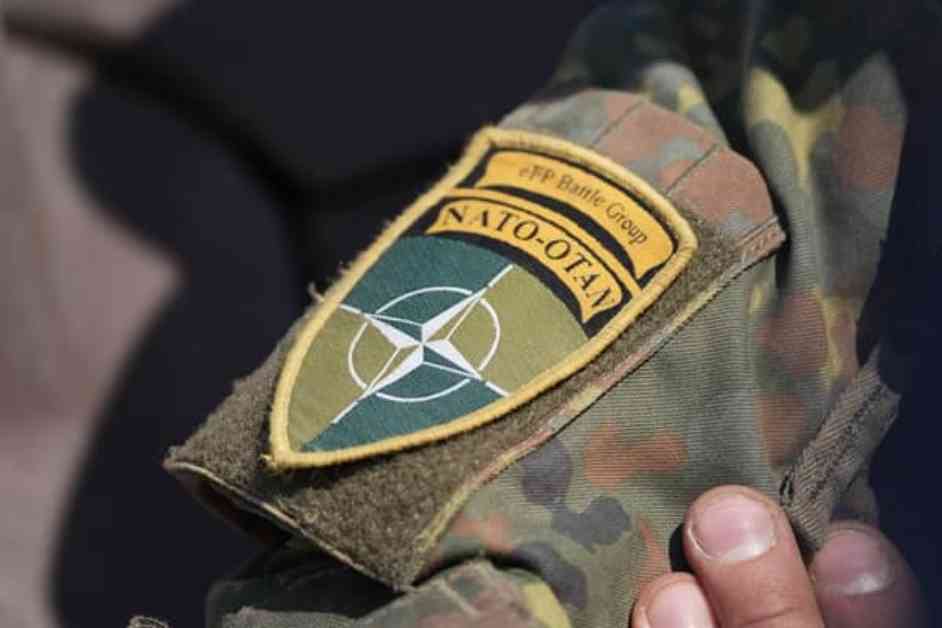Russian MP Warns NATO of Retaliation with More Powerful Weapons
In a recent address to Parliament, Russian State Duma Speaker Vyacheslav Volodin issued a stark warning to NATO, stating that Russia would respond with “more powerful weapons” if the US and UK were to proceed with discussions of potential strikes using long-range Storm Shadow cruise missiles. The escalating tensions have raised concerns about the possibility of a conflict that could have devastating consequences for all parties involved.
NATO’s Potential Involvement
Volodin emphasized that any strikes on Russian territory by the US and UK would not only target the country itself but also involve NATO personnel in the execution of such attacks. He pointed out that the satellite clusters used for targeting and command execution belong to the United States and NATO countries, indicating a significant level of involvement by the alliance in any potential conflict.
The Russian MP warned that NATO’s participation in discussions of strikes on Russian cities could lead to dire consequences and urged European politicians to consider the ramifications of aligning with leaders who lack popular support. He highlighted the readiness of Russia to retaliate with even more powerful weapons if provoked, emphasizing the grave risks involved in escalating tensions to the point of armed conflict.
Preventing a Catastrophe
Volodin also mentioned Russian President Vladimir Putin’s efforts to prevent a nuclear catastrophe and avoid a war that could spiral into a global conflict. He stressed the importance of diplomatic measures to defuse the situation and called on European leaders to consider the consequences of their actions in light of the potential for widespread devastation.
The Russian MP’s warning serves as a stark reminder of the precarious nature of international relations and the need for all parties involved to exercise caution and restraint in their actions. The specter of a conflict with catastrophic consequences looms large, underscoring the urgent need for dialogue and diplomacy to prevent a situation from escalating out of control.
Risks of Escalation
The escalating tensions between Russia, NATO, the US, and the UK highlight the risks of military confrontation in an increasingly volatile geopolitical landscape. The possibility of strikes on Russian territory using advanced weaponry raises concerns about the potential for a wider conflict that could have devastating consequences for all parties involved.
The use of ATACMS or cruise missiles in a conflict scenario could trigger a dangerous escalation, leading to a cycle of retaliation and counterattacks that could quickly spiral out of control. The specter of more powerful weapons being deployed underscores the grave risks involved in any military confrontation, particularly in the context of nuclear capabilities on all sides.
The Russian MP’s warning of retaliation with more powerful weapons serves as a chilling reminder of the destructive power of modern warfare and the catastrophic consequences that could result from a failure to resolve conflicts through peaceful means. The stakes are high, and the need for dialogue and diplomacy to avert a potentially catastrophic outcome is more urgent than ever.
Diplomatic Solutions
In the face of mounting tensions and the threat of armed conflict, diplomatic solutions are more crucial than ever to prevent a situation from escalating into a full-blown crisis. The need for dialogue and negotiation to address the underlying issues driving the current standoff is paramount, as the risks of miscalculation and unintended consequences are too great to ignore.
Efforts to de-escalate the situation and find common ground among all parties involved are essential to avoiding a catastrophic outcome. The importance of diplomatic engagement, communication, and conflict resolution cannot be overstated in this critical moment, as the consequences of failure to reach a peaceful resolution could be dire for all parties involved.
As the world watches with growing concern, the onus is on political leaders and policymakers to prioritize diplomacy and peaceful means of resolving conflicts to prevent a potentially catastrophic outcome. The specter of war looms large, but concerted efforts to find common ground and de-escalate tensions offer hope for a more peaceful and stable future for all.

